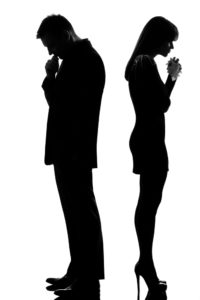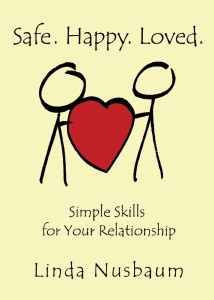Our childhood patterns are important to us when we are young. They keep us safe and help us survive. We often often bring those childhood patterns with us into adulthood, and because we can’t seem to change them, we sometimes let them stand between us and the love we experience in an adult relationship.
You may have experienced this in your own relationship. If you get your feelings hurt and your first response is for you to leave and just remove yourself from the pain, then you are reinforcing a childhood pattern that you have used in your past to defend against being hurt.
We Need to Break Some Habits in Our Relationships

Retreating in that way is a very important pattern for you, but it is not helpful when you are in love with someone and you want the relationship to work. I honor that your need to leave is vital to stop the hurting from getting worse, but to have a successful relationship you have to learn how to NOT leave.
This is the opposite of everything that your body is telling you in the moment when you feel pain. And it is a way to improve your relationship with the one you love and with whom you are building a firm foundation for the future.
We are all a product of how we grew up. Everyone on the planet is carrying what they learned when they were little with them and using these patterns in their own relationships. The people who build lasting relationships know that what they need to do is to build habits that support the union of two people.
Reexamine Your Reaction to Hurt Feelings in a Relationship

These habits include understanding what we do when we get our feelings hurt. I know I was one who exited a relationship when my feelings got hurt. I would get mad and then have to leave who ever was making me mad and then I would leave or I would go into another room and slam the door.
Really what was happening to me included how I felt sad and unhappy and unattended. When I was little I must have had some pain and I must have realized that there wasn’t an attending person to help me with my feelings so I just got angry. Anger is a secondary response. My first feeling is hurt, my reaction is to get mad.
This is how I became wired, when I was little. It helped me survive my childhood and probably was necessary when I was young. At least people knew something was happening to me. If they couldn’t help my emotional hurt, they could at least understand my anger. Unfortunately, people who see anger don’t move toward it, they move away. So I really grew up without connection. I didn’t learn connection until I was in my own adult relationship.
Practice Connecting When Hurt to Grow Closer

We get together with our partners because we crave connection. Then, we want to stay in the relationship because connection feels good, but sometimes our old childhood ways could make us react in ways that are not congruent with a healthy relationship. We don’t do this on purpose. But we can learn to lay our exit or anger patterns down and do something different.
This is the skill I needed to build a solid foundation with the one I love. You can learn this too. I learned I have to stay. It sounds impossible. And it’s not.
Learn How to Build Connection in Your Relationship
Read a Book About Relationships
Learn how to ease the pain in your relationship, by reading Linda’s book Safe. Happy. Loved. Simple Skills for Your Relationship. It might just help your previously painful relationship grow into your healthiest, most satisfying one yet. Give it a read.
Get Couples Counseling
Come in for couples counseling. Couples counseling can help you and your loved one get the most out of your relationship. It'll equip you with coping strategies and tools for communication that can help you argue less and love more.


